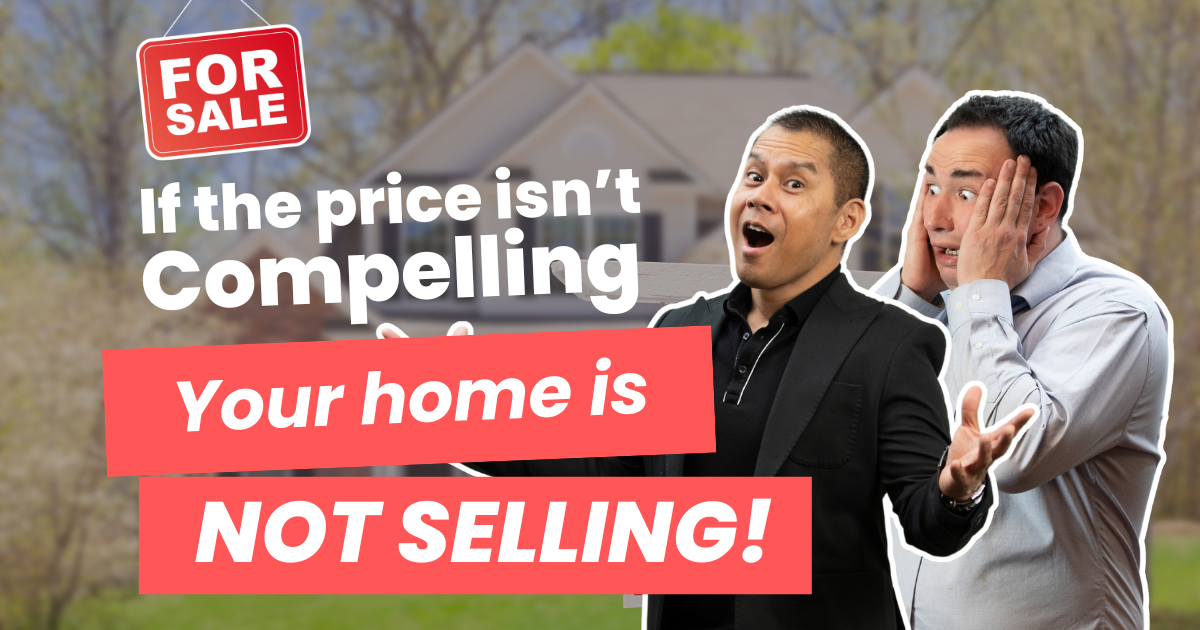When it comes to selling your home, one of the most critical factors for success is pricing it correctly from the start. If the price isn’t compelling, the home simply won’t sell. While it may seem like listing at a higher price gives room for negotiation, the reality is that overpricing often backfires, leading to longer market times, fewer offers, and ultimately, a lower final sale price.
The Pitfalls of Overpricing
Many sellers assume that pricing their home on the higher end allows for negotiation wiggle room, but statistics show otherwise. According to Realtor.com, one in five sellers end up reducing their price before selling. That’s a situation no homeowner wants to find themselves in.
Here’s why:
1. Buyers Are Price-Sensitive
With rising mortgage rates and home prices, buyers are more cautious with their budgets than ever before. If a home is priced too high, buyers aren’t thinking, “I’ll just negotiate.” Instead, they’re thinking, “Next!” and moving on to better-priced options.
2. Fewer Showings and Offers
Overpricing means fewer interested buyers, fewer showings, and fewer offers. The longer a home sits on the market without activity, the more skeptical buyers become.
3. The “Red Flag” Effect
If a home remains unsold for too long, buyers start wondering if something is wrong with it. They may assume there are hidden issues or that the seller is difficult to negotiate with. Even if the only issue is price, perception plays a huge role in buyer psychology.
4. Price Drops Can Signal Weakness
When a home is eventually reduced in price, it can send the wrong message. Rather than attracting fresh interest, it may make buyers think they can push for even deeper discounts. This reaction often leads to sellers walking away with less than they would have if they had priced the home correctly from the start.
The Right Pricing Strategy
The best way to avoid these pitfalls is to work with an experienced real estate agent who understands local market conditions. A skilled agent will:
- Analyze recent sales and neighborhood trends to determine the most competitive price
- Assess buyer demand to ensure the home is positioned attractively in the market
- Provide data-driven guidance, rather than simply listing at the seller’s desired price
Pricing a home correctly means finding the “sweet spot”—one that attracts strong buyer interest while still maximizing the seller’s return.
The Bottom Line
At the end of the day, the goal isn’t just to list a home—it’s to sell it. Sellers who price their home correctly from the start are more likely to generate interest, receive competitive offers, and close at a strong price.
Join Johnny and Randolf in this week’s Market Update Video:

